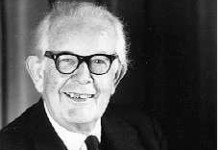"I began to think of children not as immature adults, but of adults as atrophied children. But when I said this to educationalists, they became angry.” – Keith Johnstone
This week I would like to highlight the importance of creativity in the setting of an organizational change program. Regardless of the change you are dealing with, when you are in the thick of implementation you will soon find out that experience, knowledge and skills alone will not get the job done. Organizational changes tend to be messy and complex, so you will always need a fair amount of out-of-the-box thinking as you are crafting a solution.
One of TED’s newest talks online is by Tim Brown the CEO of Ideo. In this talk he explains the role of play, playfulness, and creativity and why they matter in our professional or academic lives. You may be a designer of consumer goods, or a medical doctor, or a researcher, or a teacher — every situation is different. But listen to what Tim Brown says and ask yourself how the idea of play might be introduced into your organization in a way that would benefit users, workers, patients, and students, not only in terms of productivity but also in terms of simply having people feel they contribute to something meaningful.
Brown starts by sharing a striking observation: ‘friendship is a shortcut to play’. It creates the trust and a sense of psychological security you need in order to take risks and to innovate. It helps to get to better creative solutions – which in the end helps us to do our jobs better.
Second, he demonstrates that when we encounter a new situation as adults – we have a tendency to categorize it just as quickly as we can. This is a survival reflex that helps us reduce the uncertainty around us (psychologists refer to this mechanism as ‘cognitive dissonance’ or ‘over justification’). This effective categorizing mechanism helps us to cope with the complexity of reality. However, at the same time, we lose every capacity to perceive events, situations and things around us without judgment – like children do. The absence of a categorizing reflex is exactly what enables kids to be more engaged with open possibilities. As adults the majority of the possibilities at our disposal are invisible – just because of this categorizing trait. As Brown describes in the video above: "parents of young kids all have their stories of how on Christmas morning our children end up playing with the boxes far more than they end up playing with the toys that ere inside them".
The bottom line is that we need to be aware of adult behaviors that are getting in the way of ideas. We need to play more often because learning is a by-product of play. For example, fearing judgment from our peers — inhibits us and often prevents us from taking chances or sharing our ideas with others. As adults we become overly sensitive to the opinion of others, we lose a bit of our freedom.
Related articles:




Pingback: Parenting as a Management Skill … Huh? (part 1) | Reply-MC()